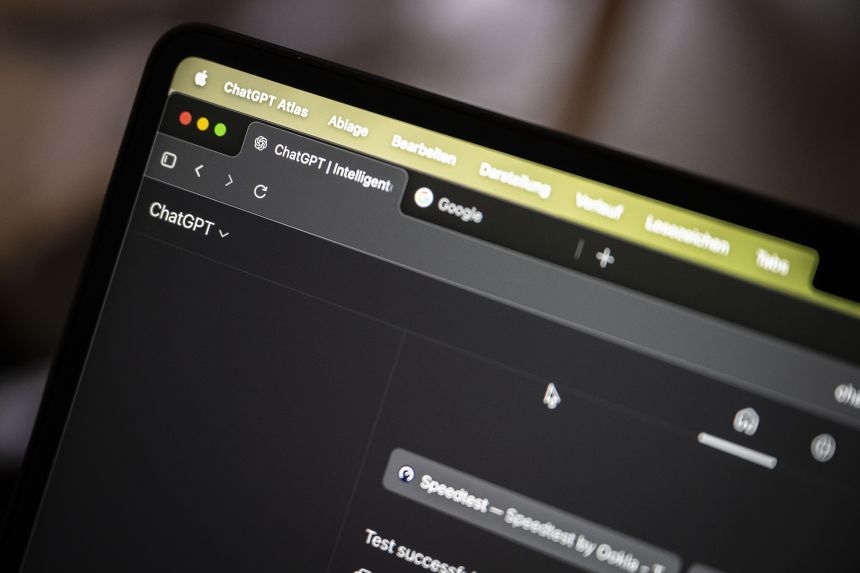The tug-of-war over the internet’s future escalated dramatically on Tuesday after OpenAI unveiled a new product that takes direct aim at the heart of Google’s core business: controlling the world’s front door to the internet.
OpenAI this week released ChatGPT Atlas, a desktop web browser infused with the popular AI chatbot. The product is more than just a way to expand ChatGPT, which now has more than 800 million weekly users. It’s an attempt to become the pathway to websites, social media and other online services, giving it a more direct role in everything people do online. Google has dominated that business for two decades. OpenAI is betting it can start to take over.
OpenAI’s ChatGPT Atlas isn’t the first and only AI-driven web browser; AI search company Perplexity launched its Comet browser in July. Yet ChatGPT’s massive reach makes it the most formidable threat to Google, marking a turning point in the transition away from lists of blue links.
“Your browser is where all of your work, tools, and context come together,” OpenAI CEO Sam Altman said in a blog post announcing Atlas. “A browser built with ChatGPT takes us closer to a true super-assistant that understands your world and helps you achieve your goals.”
Google’s search engine – which is at the core of its Chrome browser – isn’t going away anytime soon. But there’s some data to suggest consumers are indeed embracing AI for some of the tasks they may have previously relied on search links for. A study from Pew Research found that people are less likely to click on links when AI-generated summaries are displayed in Google. And Apple’s senior vice president of services said earlier this year in court testimony, per Bloomberg, that search queries on its devices declined for the first time in April.
Continue reading the complete article on the original source



